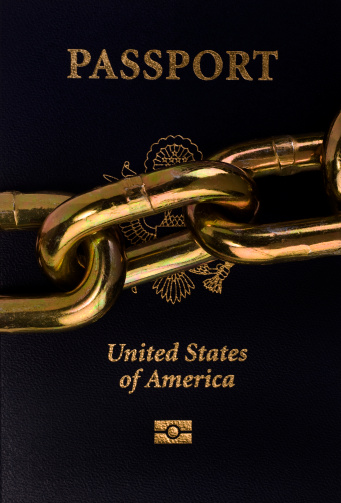Offshore Asset Protection Scams and How to Avoid Them
If you are looking for the cheapest offshore asset protection, you are in the wrong place. If you are looking for an offshore asset protection and international structures founded in case history and reality, with guidance and US tax compliance, we can help.
The purpose of this article is to explain why you need quality representation when you go offshore and exposes the common schemes of online incorporators. The bottom line is that, if you can’t afford a quality offshore trust, don’t use a lesser structure which you can’t control. Instead, go with a simple offshore corporation to plant your flag offshore. If you don’t wish to pay for an offshore corporation from a reputable source, then you might not belong offshore.
Read the risks and costs of doing it wrong and then decide if the world of international banking and offshore asset protection are for you.
Offshore Asset Protection Scams
The internet is filled with scammers who promise to protect your assets for a few hundred dollars…a one size fits all document or company that will save your life. These online incorporators claim to have mastered the mysteries of US litigation and to have created some illusionary construct that no creditor can pierce. Well, I am here to tell you that no such construct exists and that most of the asset protection “gurus” are nothing but shysters.
These scams go by many names, such as “Self Managed Anonymous Offshore Trust” (just google this phrase for a list of purveyors) and Pure Trusts a/k/a Constitutional Trusts and Common Law Trust Organizations. For additional information, see Quatloos.
Then, there are the firms that charge low rates for an off-the-shelf, zero customized, offshore company formation with no support or tax compliance. These guys make up for their lack of quality and a low upfront price in volume (I may lose money on every sale, but I make up for it in volume). They will sell you four or five companies and a Panama Foundation when a Belize or Cook Island Trust was all that is required.
They convince you that all of these components add value, and, when they are done, the total fee is the about the same as a quality offshore asset protection trust, but with none of the supporting documentation, compliance, or guidance that a professional would include. They sell you a mini-monster that you have no idea how to take care of and won’t know what to do with when it grows out of control.
Why do online incorporators market like this? Because such a convoluted structure is more profitable to them in the long run. Because they can charge you a fortune in annual fees…they are betting on the residual income you will provide and selling you something you don’t need, and probably should not use, at break-even to lock you in.
Feed the Beast
Let’s go back to the mini-monster. Your new pet is comprised of a Panama foundation, one Nevis LLC, one Panama corporation, and four Belize IBCs, and you have paid $10,000 to take this bad boy home to cover your assets like a guard dog.
Well, this mini-monster must be fed. Each year, your incorporator will send you a bill for about $1,200 per entity, for a total carrying cost of $8,400 per year. And, you can be sure there will be other costs…maybe you need a notary, a certificate of good standing, or you want to open a bank or brokerage account…this will cost you big time. Remember, they locked you in with a low price and are now going to get whatever they can.
Offshore Tax Issues
Now that this mini-monster is home, you will find that he is hungry. For example, every entity must file its own tax return with the US Internal Revenue Service, a fact that your offshore incorporator probably failed to mention when you signed up.
The Panama Foundation may need to file IRS forms 3520 and 3520-A, at a cost of about $1,700 per year. Also, each of the corporations must file IRS Form 5471, for which a qualified CPA will probably charge $1,100. This means your minimum US tax compliance bill to take care of this monster is $8,300 per year.
Finally, you will need to file a report with the US treasury of each bank account you have outside of the US is your cumulative balance during the year is more than $10,000. So, if you have four bank accounts outside of the US, each with $3,000, you have a total of $12,000 offshore and must file the FBAR.
So, you setup your structure and had no idea of these tax rules? Now the monster is angry!
The minimum fine for failure to file the FBAR is $25,000 per year per account, and up to $100,000 per year per account. And, don’t get me started on the possible criminal penalties…
The fine for failing to file Form 5471 for each corporation is $10,000 to $20,000, plus a reduction in the Foreign Tax Credit, if applicable. So, your annual penalty for failing to file for your various mini-monster’s corporate returns is $50,000 to $70,000 plus the foreign tax credit issue.
Failure to file the foundation or trust returns can result in penalties of $10,000 per year or 35% of the assets transferred offshore. This is a simplification and these penalties are more complex than I want to go in to here. Suffice it to say, not keeping a Panama Foundation in compliance can become very expensive very fast.
For additional information on your US filing obligations, see my article: US Tax Filing Obligations of ExPats.
Buy from a US Provider who Provides Tax Guidance
When dealing with an offshore incorporator, you must be cautious and take his answers to questions about your US obligations with a grain of salt. Many offshore incorporators phrase their claims and promises in such a way as to confuse you. Here is an example:
You call a firm in Nevis and inquire about forming an offshore IBC. You ask, “does this company need to pay tax?”
The sales guy will say something like, “as a Nevis IBC, there is no tax due and no tax return need be filed. Your corporation can earn money and never pay any tax to Nevis. It can also send money to you in the US, which you can report as income when received.”
This all happens to be true, and it is how so many US persons get in to trouble. You may have left that conversation with the impression that the Nevis IBC can retain earnings offshore and that you will only pay tax in the US when you repatriate that money.
What the sales guy really said is that Nevis will not tax your income and that you can wire from Nevis to the US. He made no comments about whether the US will tax your offshore company. And, from the perspective of Nevis, his statements are accurate.
But you, as a US citizen or resident, need to be concerned about the United States. It is great that Nevis will not tax your income, but that is a very small part of the offshore puzzle. The primary issue is how the big bad IRS will view your structure. If you do not live and work abroad, your corporation can’t retain earnings and all income is taxable in the US as earned.
- For a detailed discussion on retaining earnings offshore, see my article on the topic.
For this reason, you must purchase your offshore asset protection plan or international corporation from a firm that provides US tax compliance and is capable of answering your US questions. Only US licensed experts can properly advise you on how to structure your business and keep you out of trouble.
Offshore Asset Protection is not Secrecy
Hiding assets is not a useful asset protection strategy. If you have a judgment against you and you fail to disclose said assets, you might be found in contempt of court and end up in jail. Hiding assets is not a valid tax reduction strategy. If you hide assets and fail to report income from those assets, you might be found guilty of tax evasion. Do things right and do things smart.
The quickest way to spot an offshore asset protection scam is look for those that focus on secrecy or privacy. While it may be helpful that your assets are hard to find in the beginning of a case, you must assume that a motivated creditor will find them.
A professional asset protection structure assumes the creditor has a roadmap to all of your dealings and, even in this extreme case, can’t break down your barriers and get to your assets. Your plan has moved your wealth out of the reach of the creditor and the US courts, placed them behind a few quality barriers, and provides the best protection available anywhere in the world.
Quality Offshore Asset Protection Plans
When done right, asset protection, which may be more properly termed risk management, places an appropriate number of barriers between you and your creditors making it difficult or impossible to reach your assets. How difficult it is to reach those assets will depend on the complexity and, most importantly, the quality of the plan. Always remember, it is about quality and preparation, not quantity. Quantity will get you nowhere with a judge!
For this reason, I will recommend a simple, easy to maintain offshore corporation to someone looking to protect $100,000 or less. The same is true for someone who just wants to plant that first flag offshore or to move their retirement account offshore. Keep it simple!
This single layer is cost effective to feed and keep in compliance, and moves the assets out of the reach of US creditors while placing one barrier between them and your money. While it is not perfect, it may be all that your situation requires.
- And here is the key to this article: don’t be oversold! If one structure will suffice, don’t buy two…even if the price is right. Buy one and get one free is not a good idea when it comes to asset protection. It is a lot like TV ads selling cheap junk and promising a second unit at no additional cost – you will get a good deal but shipping and handling (carrying costs) will bury you.
If you have a much larger nest egg you wish to protect, a high risk of litigation, and/or wish to provide for estate planning and asset protection, than an offshore trust formed in Belize or Cook Islands is the place to start. The offshore trust is the foundation of any advanced asset protection plan and can be built up or expanded in a number of ways. For more information on offshore trusts, please see my International Trusts page.
No matter what structure you create to protect your assets, just remember that it must be maintained, that you need to be properly advised as to your US tax obligations, and that going offshore is a complex world fraught with challenges for the uninitiated. International asset protection is not for everyone!












Leave a Reply
Want to join the discussion?Feel free to contribute!